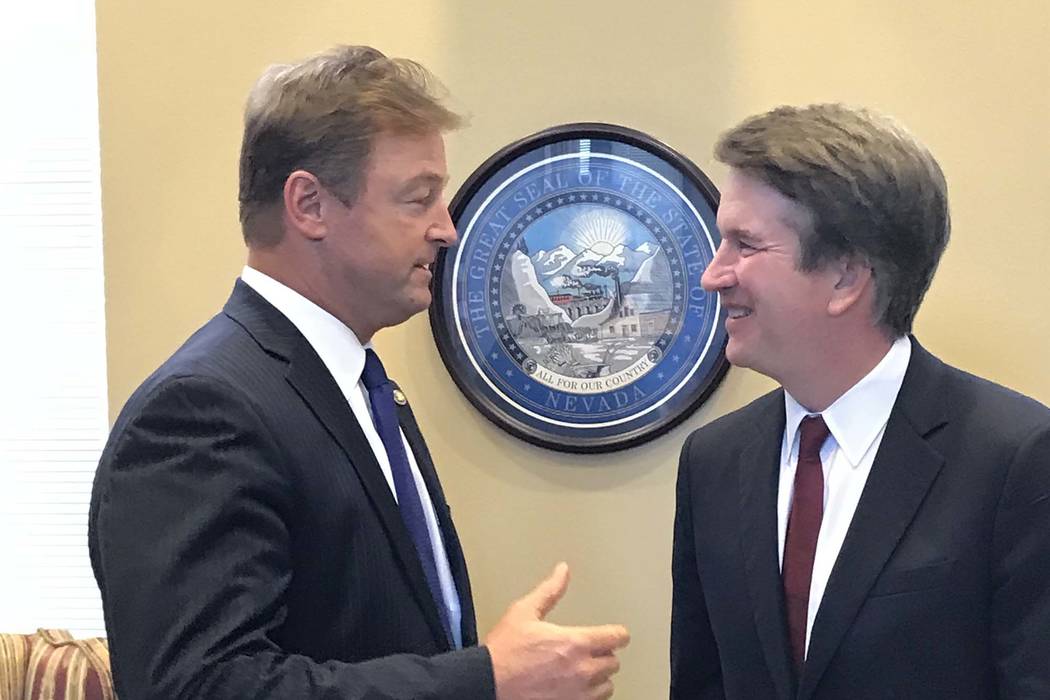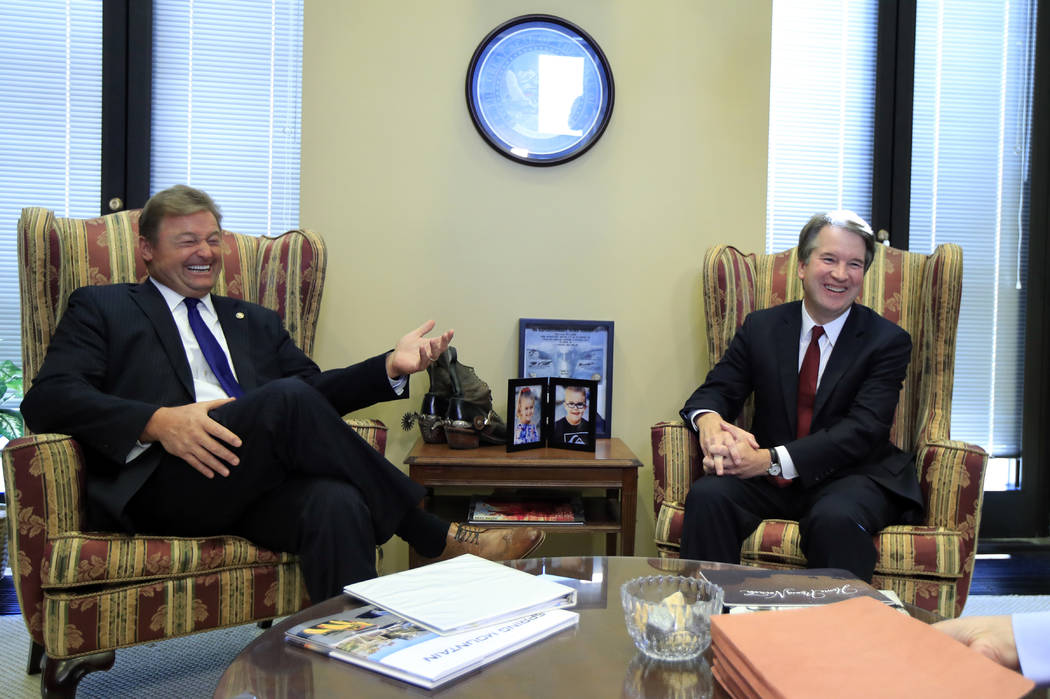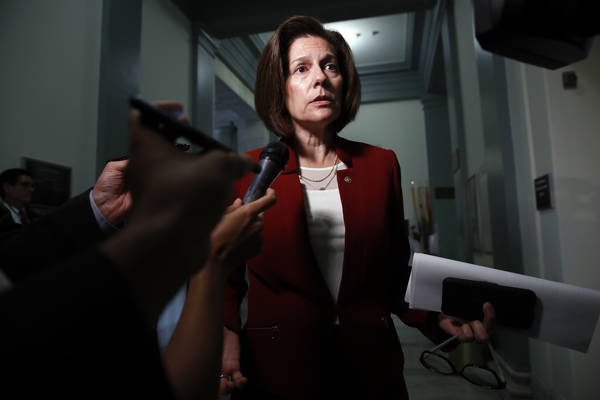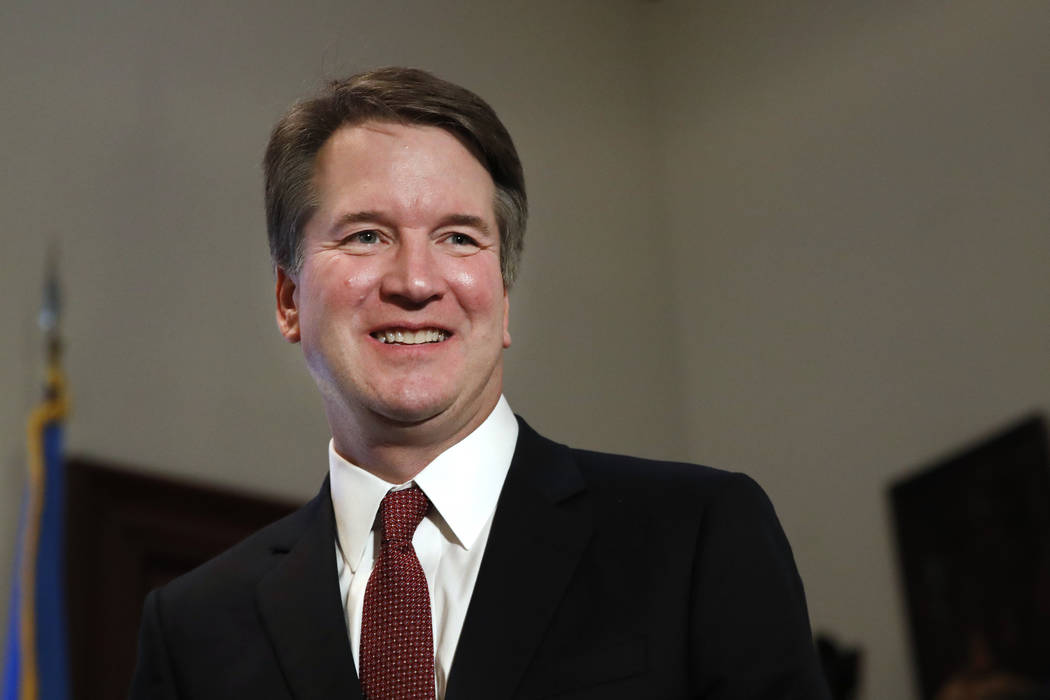Nevada senators take different approaches to Supreme Court pick




WASHINGTON — While Republican Sen. Dean Heller of Nevada announced “without reservation” his support for Supreme Court nominee Judge Brett Kavanaugh, his Democratic counterpart, Sen. Catherine Cortez Masto, said she wants a thorough review of past rulings, opinions and writings.
On their face, the different approaches taken by the two Silver State lawmakers underscore their allegiance to their respective parties and ideologies.
Last year, Heller voted to confirm Neil Gorsuch to the court. Cortez Masto voted against confirmation.
With the opening created by the retirement of Justice Anthony Kennedy, both want a qualified jurist appointed to the high court. Heller said he wants a conservative jurist.
Cortez Masto said in an interview with the Review-Journal: “I want somebody who is going to be a check and balance on the executive branch and the congressional branch.”
Cortez Masto said she also wants to see if Kavanaugh is someone who “is looking out for the best interests of all Americans, not just special interests and the powerful.”
The Nevada Democrat has asked for a sit-down, one-on-one meeting with Kavanaugh, a judge on the Circuit Court of Appeals for the District of Columbia who was picked by President Donald Trump to fill Kennedy’s seat.
Kennedy was a swing vote on the nine-member Supreme Court, voting with conservatives to settle the 2000 presidential election — handing the White House to George W. Bush — but also siding with the liberal wing on gay marriage and Roe v. Wade, the landmark 1973 ruling that legalized abortion nationwide.
Heller: ‘No reservations’
Heller met with Kavanaugh earlier this month. Following the meeting, Heller said the nominee was one who would uphold the Constitution, respect precedent and not be an activist judge.
“I have no reservations in confidently supporting Judge Kavanaugh’s confirmation,” Heller said.
Cortez Masto has yet to meet with Kavanaugh. She wants to ask him about past rulings and positions on issues that include reproductive rights, health care, organized labor, net neutrality and the Citizens United decision that resulted in large amounts of corporate donations into elections through political action committees.
Cortez Masto also wants to review his background, legal writings and other documents about his service in the White House under Bush, and his work for special counsel Kenneth Starr, whose Whitewater investigation led to the House impeachment of President Bill Clinton.
Senate Minority Leader Charles Schumer, D-N.Y., is pressing Senate GOP leaders to make available Kavanaugh documents from the George W. Bush Presidential Library, and other work products, before a confirmation hearing is held.
Senate Majority Leader Mitch McConnell, R-Ky., said he wants a confirmation hearing and a vote on the nominee before the Supreme Court returns to the bench Oct. 1.
Republican leaders have charged that Democrats are trying to delay the confirmation process with a “fishing expedition,” seeking documents that are irrelevant to his Supreme Court nomination.
That charge has been countered by Democrats who argue that Republicans received documents pertaining to Elena Kagan’s work in the White House from the Bill Clinton Presidential Library when the Senate considered her nomination to the Supreme Court.
“We should have as much information as we can,” Cortez Masto said, noting that a Supreme Court justice is a lifetime position. “For that reason we should have the opportunity to take our time and understand his background and understand his position on issues.”
Separate nomination withdrawn
Democrats were invigorated in their fight for Kavanaugh documents when the White House withdrew the nomination of Ryan Bounds for the 9th U.S. Circuit Court of Appeals earlier this month.
The nomination was pulled over Bounds’ controversial writings on multiculturalism while a student at Stanford University. Those writings were discovered after his nomination.
Democrats are correct in carrying out a thorough examination of Kavanaugh, said Carl Tobias with the University of Richmond School of Law.
“You have to put the nominee through his paces — that’s why they want as many documents as possible — and ask him questions in a hearing and see what he says,” Tobias said.
Kavanaugh’s role in the White House following the terrorist attacks of Sept. 11, 2001, which led to the torture memos and the administration’s approval of controversial surveillance measures, could be relevant to the confirmation process, Tobias said.
Last year, Gorsuch was a conservative selected to fill the seat left vacant when Justice Antonin Scalia, a conservative, died unexpectedly in 2016 in Texas. The Senate voted 54-45 to confirm.
The Kennedy retirement and Kavanaugh’s nomination could throw the balance of the court to the right for decades to come. The nominee was selected from a list compiled by the Federalist Society of anti-abortion judges that Trump vowed to pick from to fill Supreme Court vacancies.
“More is at stake,” Tobias said. “Everybody knows that Kennedy was a decisive vote on issues that were important to a lot of people, and that’s likely to be true of Kavanaugh as well.
“Kavanaugh is more conservative on a lot of issues than Kennedy was, so that’s why there is so much at stake.”
Contact Gary Martin at gmartin@reviewjournal.com or 202-662-7390. Follow @garymartindc on Twitter.














